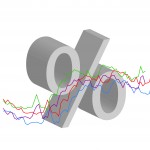For Better Or Worse, Negative Gearing Is Here To stay
 There are many who feel that negative gearing should be abolished. On the other side of the spectrum, there are many loyalists of the method too. Of course, some keep a moderate attitude. Pete Wargent for the Property Update writes a compelling piece wherein he also illustrates the impact of negative gearing through a few live examples.
There are many who feel that negative gearing should be abolished. On the other side of the spectrum, there are many loyalists of the method too. Of course, some keep a moderate attitude. Pete Wargent for the Property Update writes a compelling piece wherein he also illustrates the impact of negative gearing through a few live examples.
Investors gear their property negatively looking for tax compensations but how far is this an economically sound idea and how does it impact a country’s real estate in general and rental yields in particular? This is a question we should look to answer first.
Example 1: high deposit
There are a few examples cited by Wargent. I personally like the one wherein he talks about an investor who purchases a property for a very high deposit and at a mortgage rate of 5% (interest only). Assuming the cost of property to be $200,000 and the gross rental yield to be 6.25%, one can safely infer his rental income to be $12,500.
Mortgage liability in this case will stand at $5,000 and sundry costs (repairs and strata fee) will cumulatively amount to $3,250 for this hierarchy of property. Overall then the property will fetch $4,250 net cash flow, unaccounted for taxes.
Example 2: Bad investment
Among many other examples showcasing the effect of negative gearing, Wargent talks about a specific case of “malinvestment” where a person buys a very expensive property for $ 1 million. Wargent assumes that the interest rates have reverted and takes a hypothetical figure of 10%.
Further assuming rental yields to be as low as 3%, the case presents a prime example of huge losses incurred by an investor ($80,000 to be precise); diluted to a large extent by tax compensations on negatively geared properties.
Investor’s mind inclined towards capital gain and tax savings
This is a case where the investor’s sole motive for purchase is tax savings. Yes, the property will eventually show positive gearing but that will take some time coming. It is clear that such investors bank on capital gains rather than regular flow of income.
You can read the original article here.
I feel that negative gearing will certainly not vanish overnight. It will hit the government really hard that way. Moreover, our policy makers hardly have the courage to go through such a move even if one harps on its economic merit for a moment.
At the moment, we are just not prepared to see demand slackening for our existing housing stock and this makes me doubly sure that negative gearing will be practised (in its present avatar) for at least some time to come.
What is your opinion on negative gearing?











